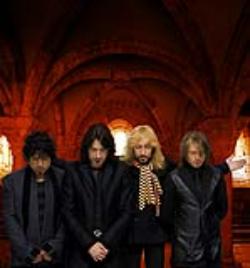What do these pop culture icons have in common? All have made news in recent weeks, and all reveal how rapidly our culture has changed.
Thirty-one million people watched Michael Jackson’s televised memorial service last week. Meanwhile, millions more say they are tired of hearing about him.
Either way, it’s important to realize there never may be another star as big as Jackson, a singer and dancer who was a major star in radio, MTV, TV, movies and record sales (selling 61 million albums in the U.S. and charting 13 solo No. 1 singles). Today’s media marketplace is so fragmented that future artists may never generate such widespread fame and popularity.
Stryper’s debut arrived on the scene in 1984 and immediately gained recognition with its unique combination of heavy rock and Christian lyrics. I wrote about the band in Christianity Today in 1985, and the article drew a host of angry responses from readers who said God could not use rock music — many of whom cancelled their subscriptions. (See article and letters here.)
Stryper releases its latest album, Murder by Pride, July 21, 25 years after its debut release. I don’t anticipate many Christians will complain now.
Meanwhile, the Walkman recently celebrated its 30th birthday. Sony has sold 385 million of the music players, which were the first portable music devices that could play your own personalized mix tape. The first Walkmans cost $340 before becoming cheap and widely available. Today, iPods dominate the portable music scene, with 210 million sold so far.
During the July 4 weekend, Casey Kasem broadcast his last “American Top 20” countdown show on radio stations worldwide. Kasem started his “American Top 40” countdown show in 1970, a time when millions of people tuned in regularly to hear what the week’s top single was. Today, people have new ways of finding and hearing new music.
What other kinds of changes will impact pop culture in the years to come?




